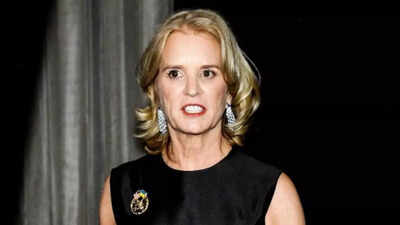Trump Pauses Tariffs Amid Market Turmoil

In a significant shift in economic policy, President Donald Trump has halted plans to impose steep new tariffs on imports from numerous countries, a decision that comes in the wake of severe fluctuations in global stock markets. For weeks leading up to this announcement, Trump had been steadfast in his approach to enforce these tariffs, despite warnings from economists and industry leaders that such measures could lead to widespread economic chaos.
On April 9, just hours after the tariffs were initially set to take effect, Trump took to social media to announce a temporary pause on these duties. This change of heart occurred only 13 hours after the tariffs on imports from many of America's largest trading partners came into play, marking a dramatic turnaround for his administration.
In his announcement, Trump attributed the decision to the recent turmoil in financial markets, suggesting that the adverse economic impact played a crucial role in his reconsideration of the tariff policy. The tariffs were originally designed as a form of retaliation against countries with which the U.S. has significant trade deficits.
What Tariffs Did Trump Pause?
The president's announcement included a 90-day suspension of what the administration referred to as reciprocal tariffs on imports from nearly 60 countries, including those in the European Union. These tariffs were carefully tailored to correspond with the size of each trading partner's surplus with the United States. This customized approach aimed to address specific economic imbalances between the U.S. and these nations.
Instead of the reciprocal tariffs, imports from these countries will now face a flat duty of 10 percent that Trump had previously instituted on all foreign goods starting April 5. Notably, this pause does not extend to China, a key player in international trade and one of the countries most affected by the tariffs. In fact, during the same announcement, Trump disclosed plans to escalate levies on Chinese goods from 104 percent to an astonishing 125 percent. This decision came in response to Beijing's announcement of retaliatory measures, including an 84 percent duty on American products.
In a follow-up comment on April 9, Trump expressed his belief that other nations affected by the tariffs had heeded his advice not to retaliate. He stated, Countries have not, at my strong suggestion, retaliated in any way, shape, or form. This remark underscores his ongoing attempt to navigate the complex web of international trade relations while maintaining support from domestic business sectors.
Why Did Trump Pause Some Tariffs?
The swift implementation of the reciprocal tariffs triggered significant market unrest and heightened fears of a potential recession. As stock markets reacted negatively to the news, pressure mounted on Trump from business leaders and investors who cautioned against the dire economic consequences of such tariffs. These stakeholders warned that imposition of the tariffs could lead to increased costs for consumers and hampered growth for American businesses.
When confronted by reporters at the White House regarding the abrupt halt to the tariffs, Trump remarked, I thought that people were jumping a little bit out of line. They were getting a little bit yippy, a little bit afraid. This statement reflected his perception that the market's reaction was perhaps overly cautious, but it also highlighted the growing concerns among investors about the stability of the economy amidst the ongoing trade disputes.
























